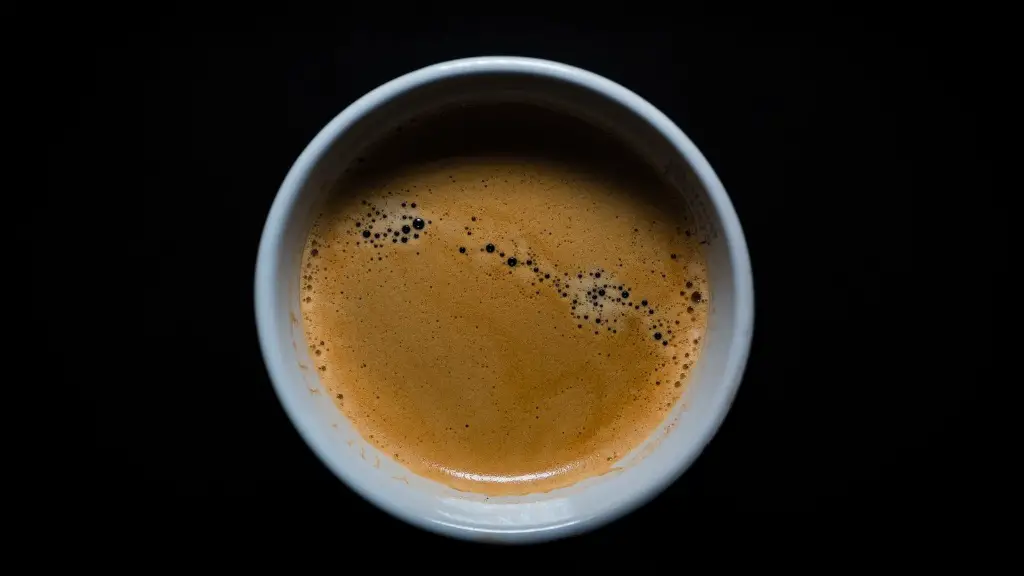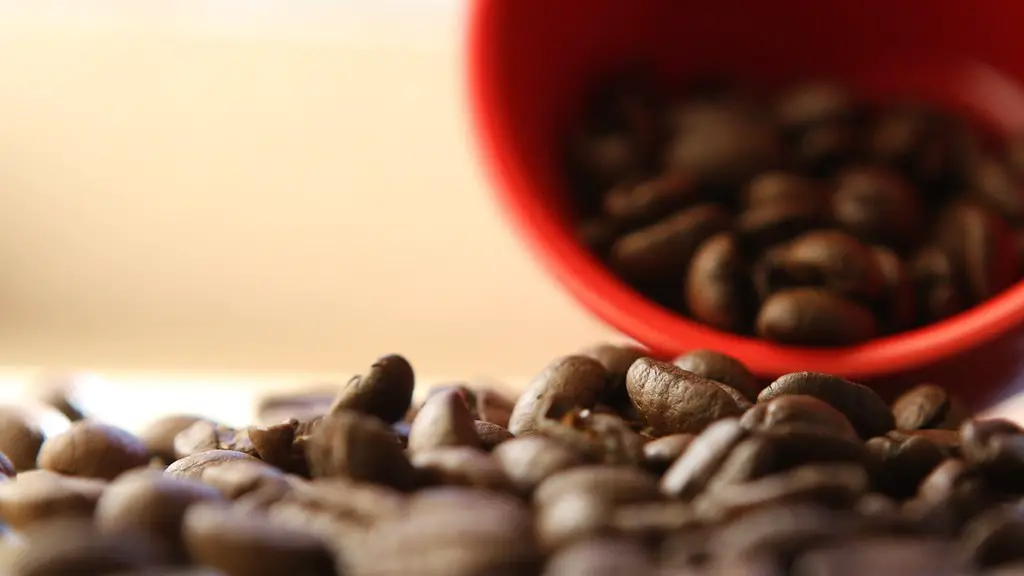With the popularity of intermittent fasting, you may be wondering if it’s okay to drink coffee while fasting. The short answer to this question is yes, but there’s a bit more to it. While drinking coffee while fasting won’t completely break your fast, it can be detrimental to your health if you’re not careful. In this article, you’ll learn all about the benefits and drawbacks of drinking coffee while fasting, and get advice from experts on how to stay safe and healthy.
How Coffee Affects Intermittent Fasting
Intermittent fasting (IF) is a style of eating that cycles between periods of eating and fasting. While there are many ways to do IF, most plans suggest fasting for 16 to 20 hours, and eating all of your meals during a four to eight hour window each day. You may think that drinking coffee while fasting is counterproductive, but that isn’t necessarily true. Research suggests that caffeine consumption during a fast doesn’t negatively impact IF, and could actually help you stick to your plan.
For instance, one study found that drinking caffeinated beverages during a 12-hour overnight fast increased people’s chances of successfully completing the fast, indicating that it may make the fasting period easier to handle. However, if you’re fasting for longer than 12 hours and don’t usually consume caffeine, drinking caffeinated beverages during your fast may affect your metabolic hormones and cause cravings. It’s generally best to avoid it if you aren’t used to having caffeine in your system.
Potential Benefits of Coffee While Fasting
Drinking coffee while fasting may have some benefits, depending on the type of fast you are doing. If you are doing a longer-term fast, such as a 24-hour fast, or even a multi-day fast, you may find it helpful to drink coffee or tea to keep your energy levels up, especially if your goal is to maintain your energy throughout the day. Additionally, a cup of coffee or tea can help curb cravings and hunger pangs.
Coffee is also a great source of antioxidants, which may provide additional health benefits. However, if you’re drinking coffee because you believe it has calorie-burning benefits, you may be disappointed. Studies have found that coffee does not significantly increase your metabolism and may in fact reduce your body’s ability to burn fat. So, unless you enjoy the taste of coffee, you’re probably best off avoiding it during your fast.
Health Risks of Drinking Coffee While Fasting
Drinking coffee during a fast may have some drawbacks, especially if you don’t usually drink caffeine. Consuming large amounts of caffeine during a fast may cause jitters and other unpleasant side effects. Additionally, caffeine can act as an appetite stimulant, which could make it harder to stick to your fasting plan.
Coffee also contains compounds, such as tannic acid, which can cause digestive issues and make it harder for your body to absorb nutrients. And if you add milk or cream to your coffee, you could be inadvertently breaking your fast. So, if you do choose to drink coffee while fasting, be sure to keep it black.
Practical Tips for Drinking Coffee While Fasting
If you’d like to drink coffee while fasting, there are a few tips to keep in mind. First, it’s best to start small. Try drinking just one cup of black coffee during your fast, and increase your intake gradually over the next few days. Next, limit your caffeine intake. It’s best to stick to 1–2 cups of coffee per day, and be sure to keep an eye on any adverse reactions.
Finally, pay attention to the timing. If you’re fasting, it’s best to drink your coffee or tea first thing in the morning. This way, it won’t interfere with your digestion throughout the day. Additionally, if you’re drinking coffee during your fast, it’s important to drink plenty of water as well. This will help keep your energy levels up, and may also reduce any negative side effects of caffeine.
Conclusion
Can you drink coffee while fasting? Yes, you can—but it’s important to do so in moderation. Drinking coffee while fasting can provide an energy boost, but it can also lead to unpleasant side effects. So, it’s best to drink coffee in moderation, and pay attention to your body’s reactions. With the right approach, you can continue to reap the benefits of intermittent fasting while also enjoying your coffee.
The Pros and Cons of Drink Coffee While Fasting
When it comes to drinking coffee while fasting, there are both pros and cons to consider. The positive side is that drinking coffee may make the process more bearable, and has many beneficial antioxidants. However, the cons include potential side effects like jitters, cravings, and digestive distress.
Those who are new to firing should be extra cautious when drinking coffee, as their bodies may not be used to it. It’s important to pay attention to your body’s responses, and to keep your caffeine intake in moderation. Additionally, it’s best to avoid adding milk or cream to your coffee, as it could unwittingly break your fast.
Understanding the Effects of Caffeine
Caffeine is a stimulant, so it has powerful effects on both your body and your mind. It has been linked to improved energy, focus, and alertness. However, it can also cause a number of unpleasant side effects, such as dizziness, headaches, and a rapid heartbeat. Additionally, caffeine can be addictive, so it’s important to monitor your intake to avoid becoming reliant on it.
If you’re considering fasting and drinking coffee, it’s a good idea to get familiar with the effects of caffeine first. This will enable you to better understand how coffee might affect your body during a fast. Additionally, it’s important to keep in mind that caffeine may increase your body’s production of cortisol, which could inhibit fat burning and cause inflammation.
Tips for Safe and Healthy Fasting
If you’re looking to make your fasting healthier and more sustainable, there are some tips to keep in mind. First and foremost, it’s important to stay hydrated throughout the day. Dehydration can cause fatigue, so be sure to drink plenty of water and other non-caffeinated beverages. Additionally, try to incorporate more nutrient-dense foods into your diet, as these will provide your body with essential vitamins and minerals.
When it comes to coffee, pay attention to your body’s cues. If you’ve been drinking coffee and are feeling jittery or anxious, try reducing your intake or avoiding it altogether. Additionally, be sure to get enough sleep and rest between fasts to allow your body to recover. This is especially important when fasting for long periods of time.
Using Supplements Wisely
Although you may be tempted to reach for a supplement while fasting, it’s important to proceed with caution. Supplements can be beneficial, but they can also cause negative side effects and interact with other medications. Speak with your doctor before taking any supplements, and be sure to discuss potential side effects and interactions. Additionally, if you’re taking supplements, it’s important to drink plenty of water to ensure your body is receiving all of the nutrients it needs.
When used responsibly, supplements can be a great tool for safely and healthily fasting, but you should speak with your doctor before taking any. Additionally, consider incorporating other healthy habits into your fasting routine, such as drinking plenty of water, eating nutrient-dense foods, and getting enough rest between fasts.
Seeking Professional Advice
If you’re considering fasting, it’s always a good idea to speak with your doctor or a dietitian first. An expert can provide you with customized advice on how to safely achieve your goals and maximize your results. Additionally, they can provide tips on how to use supplements in an informed and responsible way.
Make sure to discuss your individual health needs and goals with your doctor. They can provide you with advice on how to optimize your diet and lifestyle, as well as help you identify any underlying health problems that could be impacting your ability to fast. With the proper guidance and support, you’ll be well equipped to experience the benefits of fasting.





